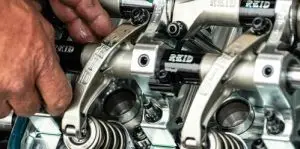Shifting Gears in the UK Automotive Sector
Alright, petrolheads, hold onto your wrenches. Labour won the election, and while their victory is a game-changer, it might not be the thrill ride we hoped for. Let’s dive into how this political shift could impact our beloved automotive sector, and spoiler alert – it’s not all sunshine and open roads.
Green Initiatives: The Electric Buzzkill
Labour’s green agenda includes a significant push towards electric vehicles (EVs). For those who love the roar of an engine, this might feel like being forced to swap our beloved car for a toaster.
Cons:
- Increased EV Incentives: More perks for EV buyers might mean fewer for those of us sticking with petrol.
- Charging Infrastructure: More chargers are great for EV drivers, but what about us petrolheads looking for more petrol stations or better fuel quality?
Manufacturing Boost: Not All That Glitters
Sure, Labour’s focus on local manufacturing could mean more jobs, but let’s be honest – if the result is a bunch of soulless, eco-friendly cars, are we winning?
Cons:
- Higher Labour Costs: More jobs might mean more expensive cars as manufacturers pass the costs onto us.
- Focus on Green Tech: Local manufacturing might prioritize EVs over the petrol-powered beauties we love.
Regulations: Emission Mission Impossible
Stricter emissions standards are on the way, and while they’re great for the environment, they could spell disaster for our high-performance machines.
Cons:
- Increased Compliance Costs: Manufacturers will have to spend more to meet these standards, and guess who’s footing the bill? Yep, us.
- Potential Higher Prices: The cost of meeting these regulations could be passed down to the consumers, making our passion even more expensive.
Public Transport: The Anti-Car Agenda
Labour’s love affair with public transport could mean less investment in roads and infrastructure for personal vehicles. It’s not exactly music to a petrolhead’s ears.
Cons:
- Reduced Incentives: If funding shifts to public transport, we might see fewer incentives for car ownership.
- Diminished Road Infrastructure: Less money for roads could mean more potholes and less maintenance, making our drives less enjoyable.
Economic Uncertainty: The Bumpy Road Ahead
New policies and economic strategies often bring a period of uncertainty. This could lead to reduced investment in the automotive sector, which isn’t great for anyone.
Cons:
- Investor Hesitation: Uncertainty might scare off investors, slowing down growth and innovation in the sector.
- Potential Slowdown: This hesitation could lead to a slower rollout of new models and technologies we care about.
Skills Gap: The Knowledge Crunch
As the industry shifts towards greener technologies, a looming skills gap exists. Retraining the workforce is essential, but it’s a long road ahead.
Cons:
- Disruption During Retraining: The transition period might be rough, impacting productivity and innovation.
- Focus on Green Skills: Training might prioritize green technologies over traditional automotive skills, leaving a gap in expertise for petrol vehicles.
Conclusion: Buckle Up for a Rough Ride
Labour’s victory will change the landscape of the UK automotive sector, and not necessarily for the better if you’re a petrolhead. The road ahead looks bumpy, from increased costs and regulatory changes to a shift in focus towards public transport and green technologies.
It’s challenging for those who live for the thrill of a powerful engine and the open road. Petrolheads are nothing if not resilient. We’ll find a way to keep our passion alive, no matter what comes our way. So, keep your engines revving and your spirits high—we’re in for a wild ride no doubt!
Do you want to vent or share your take? Comment below, and let’s get the conversation rolling!




